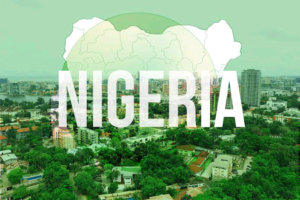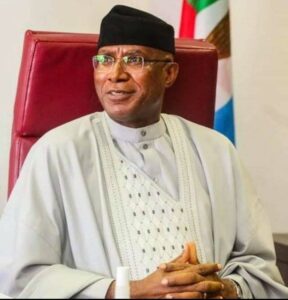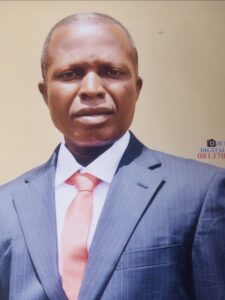By Zik Gbemre
One of the major problem facing the Nigerian Immigration Service (NIS), which urgently needs to be given more attention to, is the challenge of the influx of illegal immigrants into the country. Many of these aliens come through illegal routes (be it land, sea or air), while some who gained entry through any channel of the designated border posts possibly bribed their way in. The immediate past Comptroller General (CG) of the NIS, Mrs. Rose Chinyere Uzoma, once mentioned the challenge posed by the Economic Community of West African States’ (ECOWAS) Free Movement Protocol. However, much as ECOWAS guarantees free movement of persons and free trade within the sub-region, the protocol does not say such persons should not have genuine travel documents.
By far the greatest challenge facing the NIS today is the porous Nigerian borders which the former CG preferred to call extensive and expansive boundaries. The Minister of Interior, Abba Moro, in February 2013, said Nigeria had 84 regular borders and over 1,487 irregular routes into the country. Policing this huge number of entry points when the Service has only 22,000 workforce, many of whom are doing other duties apart from border patrols, is Herculean. Unfortunately, twice now, attempts to recruit new members of staff into the organization had ended in a fiasco. First was in July 2008 when 17 persons reportedly died during the nationwide recruitment to the NIS and Nigeria Prisons Service. The second and more recent tragedy occurred on March 15, 2014 when another 15 applicants were also confirmed dead in stampedes during the Service recruitment exercise. Scores were also injured. Unfortunately, some few months back, the former CG said six months after the heart-rending incident, the committee set up to look into the remote and immediate causes of the disaster had yet to conclude its work. What an efficient way to work! Most painfully, the man under whose watch the tragic incident occurred, Moro, has neither resigned, been redeployed nor sacked. Whereas, the now former CG was asked to gracefully resign her position on account of ‘recruitment scandal’ and the current CG, Mr. David Shikfu Parradang, was appointed to take over.
That is by the way. The issue at stake here is the need for the NIS to come to terms in addressing its duties of “aliens control and border patrol management; and the issuance of all Nigerian travel documents.” We find appalling and rather a disturbing trend that every now and then, there are reports of repatriated illegal immigrants, not to mention the fact that there are still countless unknown illegal immigrants in the country that either are here to cause havoc to the national security or are here to do whatever pleases them since no one is checking their activities. Nigeria has become a destination point where foreigners of all colour and race can‘conveniently’ come into the country without any restrictions and do whatever they please. This makes one to wonder if we actually have an immigration service.
Just early this year, there were reports that the Akwa Ibom State Command of the NIS has repatriated 460 illegal migrants as well as rescued six human trafficking victims. There were reports also that the NIS arrested and repatriated 430 illegal immigrants in Jigawa between January and November 2014. The Comptroller of the NIS in the State, Mr Isa Jere, made the announcement some weeks back in Dutse, the state capital, while parading seven Nigeriens and one Malian illegal immigrant. Jere said that 90 per cent of the arrested immigrants were from Niger Republic while others were from Cameroun, Chad and Mali. This is just few out of many instances of reported repatriated illegal migrants cases in the country. And these are the ones that the NIS are aware of and made known to the public. What about those other unaccounted illegal aliens in the country? Only God knows the huge number. The fact is that the way illegal migrants enter into Nigeria undisturbed, seriously calls for concern.
Illegal immigration in Nigeria is a serious problem and the border has become quite porous. According to the Government there are 1,497 illegal migration points to enter the country. Though, the government is said to be investing millions to secure the border, however it appears the needed results is yet to be seen. It was also revealed that people from Niger are the biggest group of illegal immigrants to Nigeria. Lagos State Command of the Nigerian Immigration Service said recently that the largest numbers of illegal immigrants in Nigeria are from Niger Republic. This was revealed just as the service deported eight Filipinos working in a multinational company without a valid visa. It was also reported that since the arrest of a Chadian on the grounds of terrorism inIjora area of Lagos, security agencies in the State have increased the clampdown on illegal immigrants. This is just the situation in Lagos alone; we then imagine the statistics and situation in other States across the Federation. It is no longer news that there are so many foreigners who enter the country under the guise of working in one company or the other, after which they end up staying back to engage in all manner of illegal activities and unwholesome practices. The worst part is that most of us see these white foreigners and treat them like VIPs whereas; back in their country home they are nobodies’.
Looking at the Nigeria Immigration Service (NIS), one would say it has come a long way since it was carved out of the Nigeria Police Force in 1958. The Immigration Department, as it was known then, was entrusted with the core immigration duties under the headship of the Chief Federal Immigration Officer. During this period, only the Visa and Business Sections were set up. However, on August 1, 1963,Immigration Department was formally established by an Act of Parliament (Cap 171, Laws of the Federation Nigeria). At that point, its operations and control were moved from the Nigeria Police to the Federal Ministry of Internal Affairs. Since then, the functions and responsibilities of the NIS have been expanded to include introduction of the ECOWAS and African affairs/bilateral division; aliens control and border patrol management; and the issuance of all Nigerian travel documents.
Not to sound biased, among the successes the Service had recorded in its over five decades of operations include the introduction of information communication technology applications in its operations. By moving from analogue to digital or manual operations to computerization, the Service introduced the Combined Expatriate Residence Permit and Aliens Card. It also announced online payment for its facilities while also establishing a website to promote its activities.
Furthermore, according to the organization, “The introduction of Machine Readable Electronic Passports in 2007 was a landmark achievement by the Service in that Nigeria became the first country in Africa to introduce the e-passport and among the first 40 countries in the world to do so. The embrace of the e-passport has become a major tool in the fight against “trans-border criminality as the e-passport contains the biometric details of holders thus making it easy for detection of persons travelling under false identities or compromised travel documents…” The Nigeria Immigration Service equally claims to have established a well-equipped forensic laboratory for the examination of travel documents and monetary instruments.
However, it is training a special border patrol corps to help fight terrorism and other crimes at the nation’s borders. During an event in Kano in April 2014, the 13th Comptroller General of Nigeria Immigration Service, Mr. David Shikfu Paradang, was quoted by the News Agency of Nigeria as saying that, “Apart from the training, the initiative has so far seen the purchase of 60 additional patrol vehicles, communication gadgets, increased control posts from 84 to 114 and border patrol bases from 45 to 72 …”
Among the feats the NIS tells everyone who cares what it has achieved is the newly introduced 64-page electronic passport which was launched by President Goodluck Jonathan on July 30, 2014. This is to complement the 32-page e-passport currently in use and is targeted at frequent travellers. The new passport is said to be “gender-friendly, forestalls identity theft, cheaper for the aged and low income earners.” The service also boasted that in recognition of its giant strides, “the International Civil Aviation Organization, the global body that regulates standards for travel documents, admitted Nigeria into its board as the sole African representative.”
With all the above, readers may think one is talking of a saintly organization that is efficient, effective and faultless. Far from it! Instead, the Nigeria Immigration Service is a cesspool of corruption, nepotism, and primordial sentiments. Before the advent of e-passport, incidences of fake passports being churned out by some unscrupulous members of staff of the Service in cahoots with some undesirable elements in the society who are master forgers were very alarming. Also, before the advent of e-passport, it was possible for an individual to have multiple passports bearing different names, much as it was easy for non-Nigerians to get the country’s green passport. It is noteworthy that the e-passport has only significantly reduced these fraudulent practices but has not eliminated it.
Corruption still thrives at the NIS. It is practically impossible to get the e-passport at the official rates. Many who want express service still go through touts and middlemen who help to speed up the acquisition process even though one has to go physically to have one’s biometric details captured. Anyone who wants to follow laid down rules and procedures to the letter should be ready to wait indefinitely. The process of getting the e-passport is painfully slow and can take weeks and months unless you’re ready to “play ball”. Even getting one’s passport renewed is no less tedious as only about four persons are doing the biometric capturing at the NIS headquarters in Abuja and here you have hundreds of people turning up every day to make requests for the passports. The NIS has also on several occasions been rocked with “job-for-sale” scandals where prospective applicants are made to illegally pay hundreds of thousands of naira to a syndicate in exchange for limited job vacancies.
But like we have said before, by far the greatest challenge facing the NIS today is the porous Nigerian borders which have led to the influx of illegal immigrants into the country. Why can’t we have the NIS engage in the usual rigorous process of allowing immigrants into the country like we see in other advanced countries? For instance, foreigners coming into the country through the Airports should be made to go through a rigorous process before they are allowed into Nigeria. At the point of entry, there is need to ask foreigners what business do they have to do in Nigeria; how long will they be staying in the country and where; can they convince us that they will not abscond or overstay their welcome in the country, and so on and so forth. These are some of the standard questions Nigerians especially, are made to go through abroad before they are given visas or allowed entry into foreign lands. Our immigration service officials should ask foreigners some of these questions at the points of entry in all Nigerian Airports; just the same way we see it in Heathrow Airport, J.F Kennedy Airport,Manchester Airport,London City Airport, Amsterdam (Schiphol)Airport, George Bush Airport, etc .
Even children are asked questions like if the adults with them are really their parents or family members as the case may be. All of which, is to ensure the sanctity and integrity of its borders of entry in controlling the influx of ‘illegal/legal’ immigrants. What is also interesting is the fact that in these stated foreign Airports above, immigrants are always asked what have they come to do in their country? Though you must have filled all the necessary documents (including the landing-forms), one is still asked the same questions no matter who you are or how many times you are traveling through that same Airport within a week. The only people immune to such rigorous questioning are Presidents of countries and Diplomats. Who says we cannot do same in Nigerian Airports? Why should we allow every dick and harry, especially Foreigners, to enter the country as they see please and do whatever they like? It is sad to note that many foreigners today in the country are without genuine papers to justify their stay and business in Nigeria. This seriously has to be checked and addressed. Some of them come into the country on visits, or to attend a business meeting, conference or workshop, but after which, they practically chose to remain in the country to do God knows what.
It is also worthy to note that most of so called expatriates working in oil and gas offshore Platforms of International Oil Companies (IOCs) like Shell, Chevron, Mobil, Texaco etc, do not have Resident Permits and proper papers to live and work in Nigeria. But they hide under the guise of the companies to create the impression that their stay here is legal. These are prevailing circumstances that are never tolerated in other foreign countries where Nigerians are seeking to live and work. We have also observed that most of the people today that are doing Security Guards (aka ‘Maigard’) either for residences or business outfits in the country are not Nigerians but are foreigners mostly from neighbouring African countries. All of these pose as security threats that needs to be checked.
We understand that the porous and chaotic nature of our borders poses severe security challenges for the nation and in particular, the Nigeria Immigration Service in the arduous task of border control and management. The difficult terrain in most of these border locations, existence of settlements along border lines without regard for buffer zones and the contiguous nature of our borders make effective migration management a quite herculean task. However, the NIS can initiate ‘proactive measures’ and copy some of the practices observed in other countries that have recorded success stories in border management and alien control. As noted by the former CG above, “the situation with Nigerian borders will improve remarkably if land border settlers are relocated to distant locations from the buffer zones to give statutory security agencies at the borders the latitude to operate within clearly defined border territories. Under a scenario like this, it will be very clear to any person entering or leaving the country that he or she is crossing international boundaries. The current experience where houses are built along border lines makes strict control impossible. I know that clearing buffer zones of settlements has huge cost implications as border settlers will have to be provided with new accommodation and other basic facilities.” This is a step in the right direction that the Nigerian Government seriously needs to come in and make happen.
Still proffering solutions to secure the nation’s porous borders, the former CG of the NIS further posited that “we can also remedy the present situation with the construction of border plazas or auto-gates, equipped with all necessary modern migration management facilities as obtained in most international borders.
Again, border operatives need to be adequately provided with office and residential accommodation as well as other necessary operational logistics. A situation where Immigration officers stay under trees with rope tied across the road without adequate arms and ammunition does not create proper atmosphere to discharge their duties effectively. In many cases, you find border security operatives residing in houses owned by suspected human traffickers and smugglers. Under such situation do you expect these people to live up to desired expectations? This is why it is very necessary to make necessary provisions for security operatives in border locations.” We strongly believe these are areas and challenges that the Nigerian Government seriously needs to come in and assist to make happen in ensuring the integrity of Nigerian borders.
Zik Gbemre, JP
National Coordinator
Niger Delta Peace Coalition (NDPC)
No 28, Opi Street Ugboroke Layout,Effurun-Warri
P.O. Box 2254, Warri, Delta State, Nigeria.
Tel: +2348026428271
+2348061524210
+2348052106013
Website: www.ndpc-zik.org



